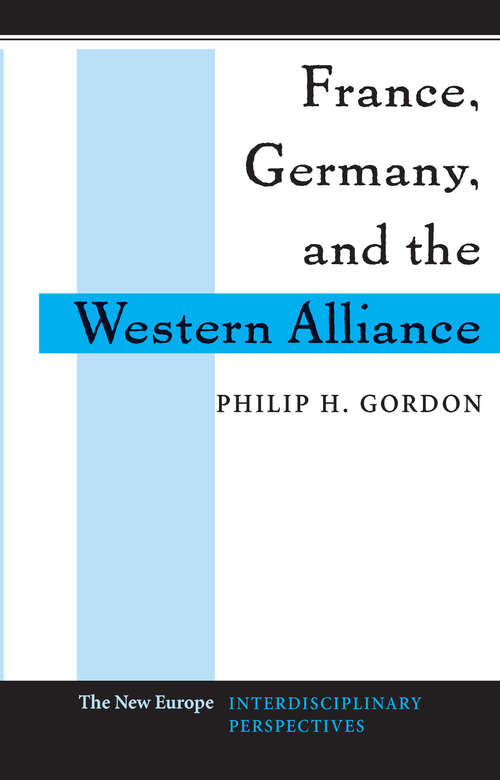France, Germany, and the Western Alliance (The New Europe: Interdisciplinary Perspectives)
By:
Sign Up Now!
Already a Member? Log In
You must be logged into Bookshare to access this title.
Learn about membership options,
or view our freely available titles.
- Synopsis
-
Whether Europe will ever have anything resembling the “common foreign and security policy” described in the Maastricht Treaty will depend most of all on whether France and Germany are able to align their foreign policy goals and means. This thoughtful and original study examines the Franco-German security partnership in its post–Cold War context and analyzes the implications of that partnership for both Europe and the United States. Utilizing French and German sources and extensive interviews in Paris, Bonn, and Washington, Philip Gordon traces the evolution of Franco-German security cooperation since World War II, focusing especially on post-1989 developments. The book's historical and conceptual approach provides a framework for assessing the foundations of the Euro-optimism and -pessimism at odds with each other today.
Gordon argues that Franco-German cooperation in the post–Cold War era will be more challenging than it was during a time when the Soviet threat united the two countries in a U.S.-led alliance. The book demonstrates how the end of the Cold War, German unification, a declining U.S. role in Europe, and emerging instabilities to Europe's east and south will test the strength of the Franco-German partnership, and it examines how French and German leaders have stood up to the new challenges so far. Detailed case studies of the Persian Gulf War, the debates over the “Eurocorps,” policies toward Eastern Europe, and the war in Yugoslavia make an invaluable contribution to our understanding of French, German, and Alliance policies in the post–Cold War world. Gordon also identifies new trends in French and German security policies since 1989 and analyzes their effects on the potential for Western and European cohesion.The book concludes that the general commitment in Paris and Berlin to continued cooperation is not in doubt but that a truly common and effective Franco-German or European security policy is unlikely; the national interests of the two countries and their Western partners not only remain different, but they are probably more divergent today than during the Cold War. Consequently, Gordon also argues that U.S. and European fears of Franco-German bilateralism are exaggerated and indeed that the allies have more to gain than to lose from Franco-German cooperation. The problem for the West is not so much that France and Germany have formed a cohesive political-military force within Europe but that they have failed to do so.
- Copyright:
- 1995
Book Details
- Book Quality:
- Publisher Quality
- ISBN-13:
- 9780429980015
- Related ISBNs:
- 9780429500381, 9780813325552, 9780813325552, 9780813325545, 9780367315818, 9780367315818, 9780813325545
- Publisher:
- Taylor and Francis
- Date of Addition:
- 06/27/20
- Copyrighted By:
- Taylor and Francis
- Adult content:
- No
- Language:
- English
- Has Image Descriptions:
- No
- Categories:
- History, Military, Nonfiction, Politics and Government
- Submitted By:
- Bookshare Staff
- Usage Restrictions:
- This is a copyrighted book.
Reviews
Other Books
- by Philip H Gordon
- in History
- in Military
- in Nonfiction
- in Politics and Government
